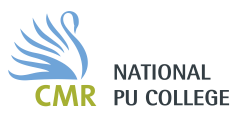Around 15-20 years back, choosing a traditional career (doctor, lawyer, civil services etc) was the only option for a safe and promising future. Thankfully times have changed. Young people are on a more sure footing to discover themselves and forge professional identities around their hobbies, areas of interest and enthusiasm, to ensure a fulfilling career that offers more than just a paycheck. Moreover, with the advent of technology and globalization, the world of work has evolved and several interesting and unconventional careers have come up. In this three-part series we will explore some of these non-traditional careers.
- Data Science: Data is critical for companies to make decisions and solve business problems as they use it to analyze customer requirements, launch new products, customer satisfaction, and offer discounts. Data Science is the study of data leading to meaningful insights for a business. It is a combination of statistics, mathematics, programming, and business knowledge.
- UI/ UX Design: This is all about designing and enhancing the interface (appearance/ presentation) and experience of a user on a website or a mobile application. A strong sense of design and understanding of user behaviour is helpful for this career. As a dynamic and creative discipline that continues to grow and change, UI UX designers come from a wide range of different backgrounds, from psychology and marketing to project management and finance.
- Urban Planning: It involves finding solutions in using land and resources, such as water and electricity, more judiciously. Moreover, managing infrastructure and supply networks as well as ensuring pollution control and environmental protection are all necessary for making a city fully functional. Required skills include strategic thinking, designing, research and analysis, and architecture, including legal issues linked to urban planning.
- Digital Marketing: This involves developing strategies for finding the right audience and influencing their decision through online marketing. It included the promotion of the organisation’s products and brands using online channels such as web, email, social media, etc. Required skills include creativity, ability to think outside the box with good writing, and designing skills.
- Ethical Hacking: In order to protect company data, and prevent it from getting into the hands of malicious hackers, computer and network experts find security loopholes and hack into systems to find security flaws in a software, web server, database server, etc. It is ethical since the hacking is done with the permission of the owner. Required skills include computer skills, programming, reverse engineering, and networking skills as well as problem-solving abilities.

